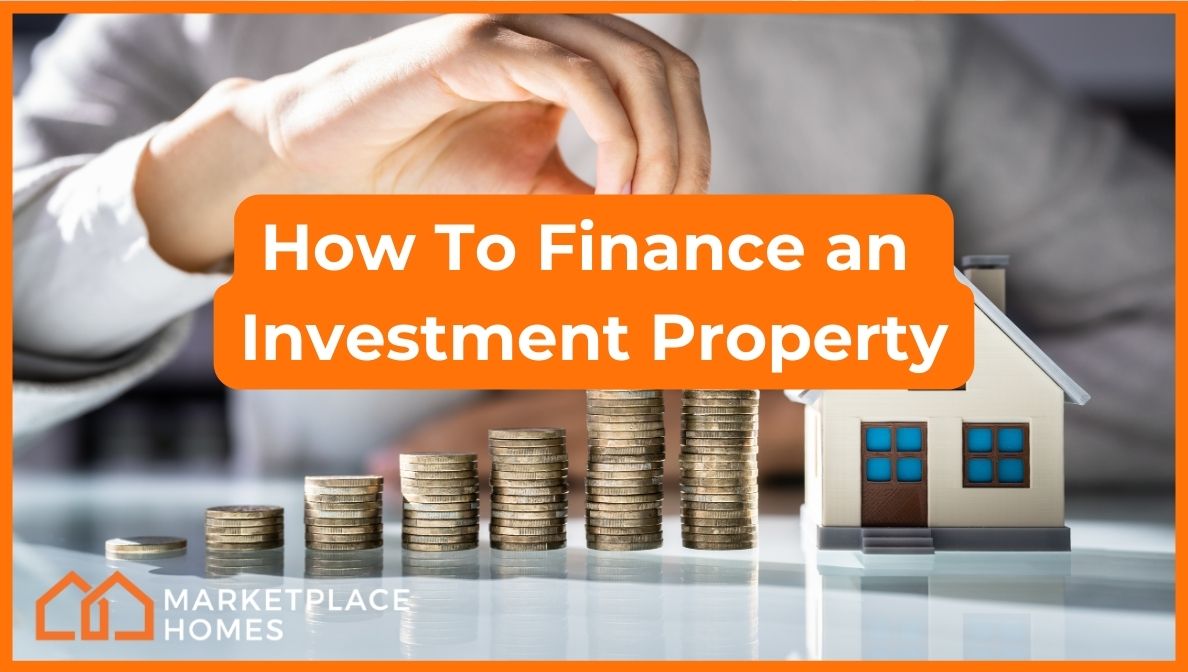What Are the Top Ways to Finance an Investment Property?
Having ways to finance an investment property opens doors to becoming a real estate investor. Every investor has a unique financial profile, which grants them access to different financing methods.
While some may be able to pay with all cash, others may use equity from an existing property to fund another property as a rental or a flip. This guide will specifically focus on the most beneficial and accessible financing options for investors to build their portfolios.
What types of loans are suited for investors?
Top Ways to Finance an Investment Property
Home Equity Line of Credit (HELOC)
A home equity loan is undoubtedly one of the most accessible methods to get a lump sum of cash. This allows any homeowner with enough equity to become an investor. This is one of the many benefits of owning a second home. By simply making your mortgage payments on time, you can pay down your loan and build substantial equity that you can borrow against to fund a large-scale investment like a rental property.
Though every lender has its unique boundaries, most borrowers can get up to 80% of their home’s value through a HELOC. This loan has some of the best rates that only improve if you have an excellent credit score and low DTI. It skips the process of getting approved for an entirely different home loan, making it easier to get a property.
Cash-Out Refinance
This method allows you to cash out on your home and pay off your existing mortgage. In exchange, you’ll get a new mortgage loan and a new payment schedule. You can use your previous home loan’s equity to pay toward your investments. If you choose this method, be aware that you will start a new loan payment cycle and need to handle your new mortgage payments and your future real estate investment costs.
Conventional Bank Loans
Federal-backed loans by Fannie Mae and Freddie Mac, which include VA loans, USDA loans, or (Federal Housing Administration) FHA loans are challenging to use for investment purposes. They have many restrictions, making it hard to fund a property that won’t be your primary residence.
However, if you need a home loan for a rental property, you can get a conventional loan. Conventional mortgages don’t have the government’s backing, meaning they have steeper approval requirements than federal loans. Nevertheless, they can come with fixed rates which keep payment consistent over the loan’s lifetime.
-
A minimum credit score of at least 629.
-
Low debt-to-income-ratio (DTI).
-
An excellent payment history.
Your lender may require a 3% to 20% down payment for a primary residence and up to 30% down for an investment property. Lenders will also want to ensure you have a guaranteed financial backup if you pay more than one mortgage.
Substantial savings or a guaranteed backup for your existing mortgage, such as through our Guaranteed Lease Agreement program, can help you push through the qualification.
Hard Money Loans
Hard money lenders offer convenient, short-term financing solutions for borrowers who can handle higher monthly payments, a shorter repayment schedule, and higher interest rates. Lenders like MINO Lending Solutions are uniquely positioned to finance investment properties. There are several types of investment property loans, like:
-
Fix and Flip Loans: This is a short-term financing option that funds the property’s acquisition and renovations with the goal of reselling it for a profit—an excellent loan for house flippers.
-
Bridge Loans: This short-term loan “bridges” the financial gap between buying a new home and selling another property.
-
Rental Loans: This is a loan typically used to finance SFR that will have a tenant and not be your primary residence. Rental loans use real estate as collateral (otherwise known as a first-lien mortgage loan).
Your lender can advise you on the best hard money loan options for your needs. Different types are suited for specific investment types, like single-family units. Ensure that your investment has the potential to produce enough cash flow to keep your finances running smoothly.
Private Money Loans
A private money loan is one of the most old-fashioned ways of getting funds. This is viable alternative to a traditional property mortgage which can give you substantial savings through less interest (or even no interest)! Borrowing from a family member or trusted friend can give you fast cash to acquire an investment.
Through a profitable flip or accumulated rental income, you can make money and pay back the loan amount on an agreed-upon schedule between you and the private money lender.
Portfolio Loans
In a portfolio loan, the lender can issue a portfolio loan if you plan to buy an investment. This is essentially a loan that isn’t resold on the secondary market. While conventional mortgages are often resold, portfolio loans remain in the lender’s books. With full control, your lender can set its own approval requirements and loan standards. This also means it sets its own lending limits.
This is one of the preferred types of mortgages for investors since it’s possible to make more than one property purchase with it, so you don’t need to take out a second mortgage. Suppose you have a large investment portfolio and want the convenience of paying for two or more rental properties at once. In that case, you can skip the multiple loan payments and pay one larger portfolio loan payment.
Seller Financing/Owner Financing
Seller financing is when the homebuyer directly buys the property from the seller and repays the seller toward the property’s purchase price. This is an alternative to a traditional mortgage loan program, in which the investor borrows from a bank.
Investors who use seller financing can benefit from less strict qualifications and down payment requirements, flexible mortgage rates (with potentially lower interest rates), and rental property loan terms. If you choose this option, all parties will still require a real estate agent and attorney to ensure all the paperwork is correct.
-
Note: Though it’s possible to also buy an investment home with a credit card, we didn’t list it as one of the “best” ways because many experts highly advise against this method.
Ways to Finance Investment Properties: Find the Next Steps at Marketplace Homes
While this is a list of the most streamlined methods to finance a rental property, there are plenty more out-of-the-box solutions out there. You may save toward a large amount of cash through wholesaling, diversify your portfolio with REITs, or choose to invest some of your money into a property and co-own it. In real estate investment, it’s never just all or nothing.
We also provide full-service property management services, which includes sourcing and selling homes, to help investors make their bottom line. Our experts can also help you fine-tune your investment strategy and get help with your real estate tax returns.
To discuss all your real estate investment options, contact Marketplace Homes today!
Alicia Persson is a Content Strategist SEO writer at Marketplace Homes, utilizing previous years of experience on real estate teams that specialized in investments and property management. Before she joined Marketplace Homes, she was also a freelance writer for 7 years, leading to a specialization in real estate and home living content for boutique digital marketing agencies. During her writing years, she learned the basics of SEO and gained experience writing for many different clients, making her versatile at creating diverse content.
She is a proud University of Virginia master’s graduate and enjoyed her undergraduate years at the University of Mary Washington. When Alicia is not writing, she plays keytar and sings in a local 90’s rock cover band, or she spends time with her amazing family.


